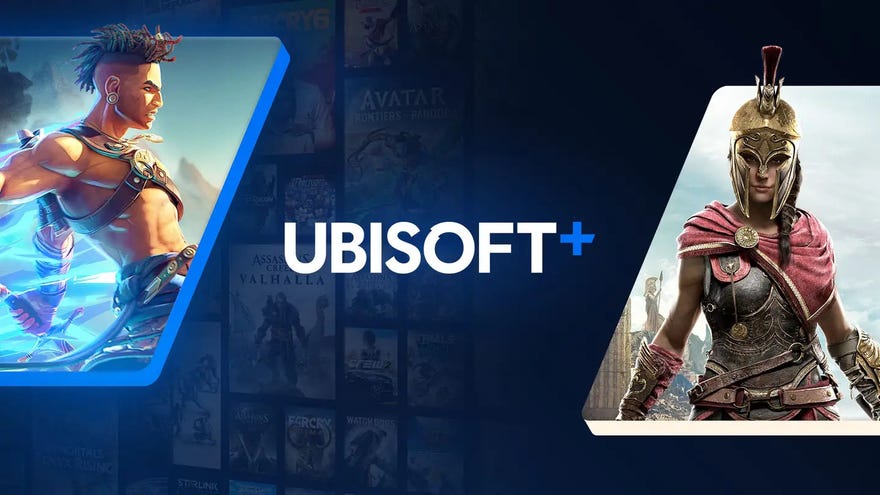Players still don't feel "comfortable" with game subscription services, says Ubisoft+ boss
"Gamers are used to, a little bit like DVD, having and owning their games."
Ubisoft's director of subscriptions Philippe Tremblay has said that for all the growth of videogame subscription services in the past few years, players are still accustomed to "having and owning their games". Accordingly, he feels his task is to help you grow "comfortable" with the idea that the game you're playing might be taken offline as part of the release schedule, with Tremblay pointing out that you can still resume your save file when the game is next available.
"I don't have a crystal ball, but when you look at the different subscription services that are out there, we've had a rapid expansion over the last couple of years, but it's still relatively small compared to the other models," Tremblay told GamesIndustry.biz during an interview about the rebranding of Ubisoft's own subs offering as Ubisoft+ Premium. "We're seeing expansion on console as the likes of PlayStation and Xbox bring new people in. On PC, from a Ubisoft standpoint, it's already been great, but we are looking to reach out more on PC, so we see opportunity there.
"One of the things we saw is that gamers are used to, a little bit like DVD, having and owning their games," he went on. "That's the consumer shift that needs to happen. They got comfortable not owning their CD collection or DVD collection. That's a transformation that's been a bit slower to happen [in games].
"As gamers grow comfortable in that aspect... you don't lose your progress. If you resume your game at another time, your progress file is still there. That's not been deleted. You don't lose what you've built in the game or your engagement with the game. So it's about feeling comfortable with not owning your game.
"I still have two boxes of DVDs," Tremblay continued. "I definitely understand the gamers perspective with that. But as people embrace that model, they will see that these games will exist, the service will continue, and you'll be able to access them when you feel like. That's reassuring."
Call me a grouch, but I'm not sure it is? Tremblay's argument doesn't address the fact that there is no guarantee a de-listed game will eventually return to a subscription service, and doesn't account for the fact that subscription services themselves may fail, exacerbating the problem of videogame preservation in a digital age.
It also doesn't dig into wider concerns about the impact of subscription models on game developers, especially smaller independents, who may feel they have no option but to publish their games via a subscription service if they want to have an audience, however unappetising the contract. Last year, Finji's CEO told GI that "if we turn a buying population into a subscription population, that means we have to rely on subscription fees and buyouts. And in general, subscription buyouts don't pay for that many years of a team's development, unless your team is very small."
Echoing many a subscription service exec, Tremblay said that Ubisoft wants people to pick and choose how they get hold of their games. "The point is not to force users to go down one route or another," he said. "We offer purchase, we offer subscription, and it's the gamer's preference that is important here. We are seeing some people who buy choosing to subscribe now, but it all works."
Tremblay also had a few things to say about "subscription fatigue", with so many different services available and all the releases spread awkwardly between them - even Hearts of Iron IV has one these days. He conceded that this "is part of the consumer reality", adding that "I'm a dad with teenagers... it's difficult to keep up with what you're subscribing to and where. That's part of the challenge we have as a subscription service, and we're embracing that."









